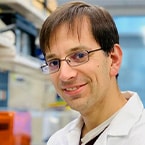NextGen Stars
AACR Annual Meeting 2025 NextGen Stars Program
The AACR Annual NextGen Stars Program offered early-career scientists the opportunity to apply for a slot in the scientific program at the AACR Annual Meeting 2025. Applicants were selected for oral presentation in a Major Symposium or Advances session based on the merits of their submitted abstracts and additional application materials. NextGen Stars received and complimentary registration and travel assistance to support their attendance at the Annual Meeting.
Congratulations to the 2025 NextGen Stars!











